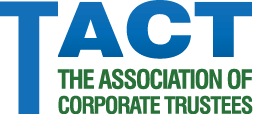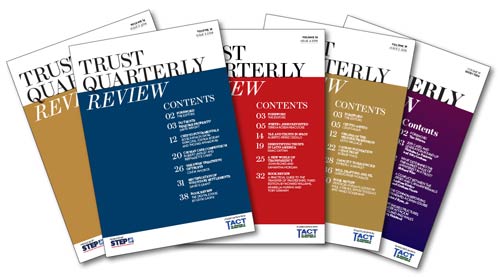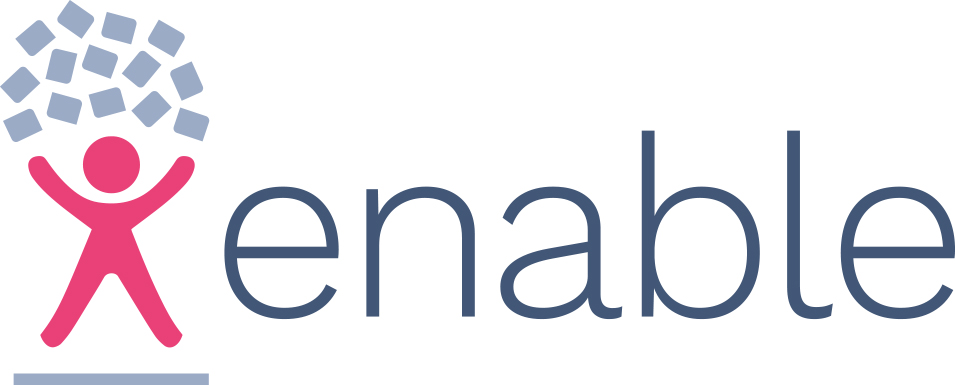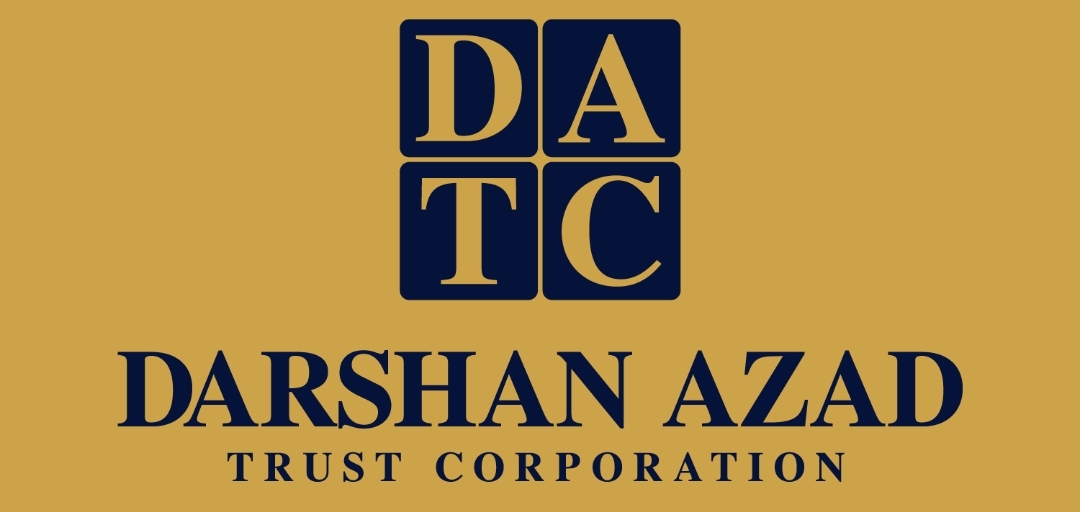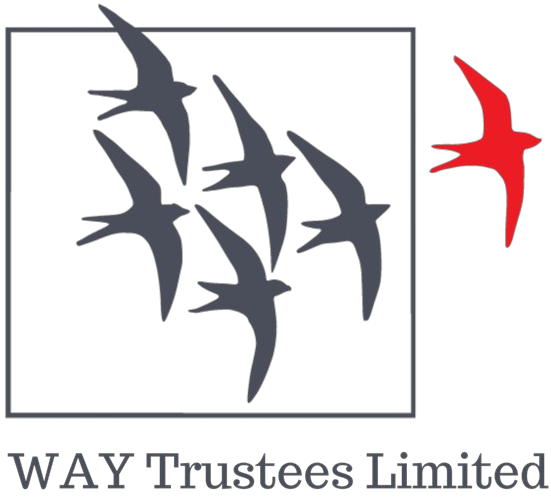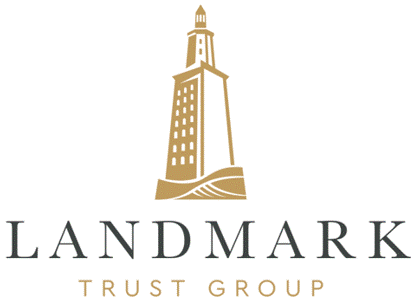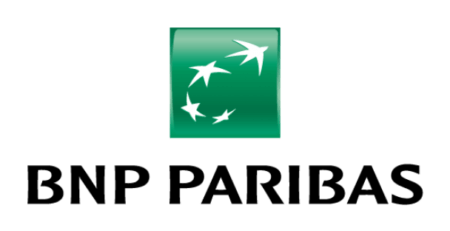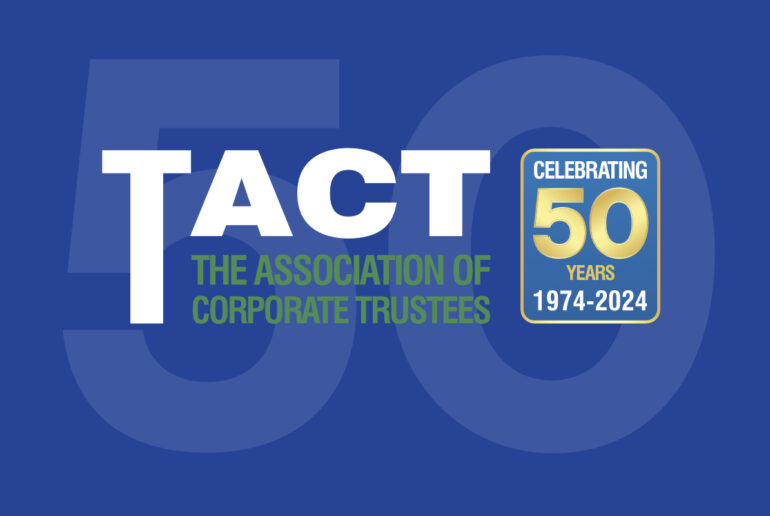
TACT 50th Anniversary Conference & Dinner
Login or register to continue reading.
It will only take a moment and you’ll get access to the TACT publications.
Please note, if registering a new account for the first time, this will require approval by a TACT member of staff before access is granted.
50th Anniversary Conference and Dinner
The lead up to the day
After receiving favourable reviews from TACT members following the TACT Dinner last year, the TACT Council, decided to hold the 50th anniversary TACT Dinner at Kings Place. As part of the 50th Anniversary celebrations, this year’s dinner was to be preceded by conference featuring key matters for Trustees from the three committees of TACT Pensions, Private Trust and Loan Capital & Capital Markets. The TACT Council also decided that each Panel or speaker would also include an educational element which would allow members to obtain CPD points. This also was extended to the after-dinner speaker; therefore, a speaker was booked that would be entertaining but also educational.
Kings Place is a music and arts venue, close to Kings Cross Stations in London and overlooks the Regent’s Canal. Attendees were able to access the private outside area by the canal to network and observe the canal’s wildlife.
The Conference
The President of TACT – The Association of Corporate Trustees, Helena Giles opened the conference using similar words recently used by Rachel Reeves who is the first female Chancellor of the Exchequer in the UK since position created 800 years ago. Helena was also deeply proud to be Britain’s first ever female President of TACT. She went on to quote Rachel Reeves’ speech – “To girls and young women everywhere, I say: Let there be no ceiling on your ambition, your hopes and your dreams. And along with the pride that I feel standing here today… … there is also a responsibility… … to pass on a fairer society and a stronger economy to the next generation of women.”.
After a quick run through of the plan for the day together with the obligatory health and safely notices with airplane style directions about emergency exits, Helena then handed over to Alex Campbell, Vice President of TACT to introduce the Loan Capital & Capital Markets Committee Panel.
Loan Capital and Capital Markets Committee
Vice President Alex Campbell moderated a panel discussing key issues that Trustees have recently faced and a look to the future. The Panel included Eliot Solarz – Head of Corporate Trust, Grace Hui – Director, Head of Legal, Specialised Services – CSC, Hannah Ward- Partner of Simmons & Simmon sand Peter Knust – Partner of Fieldfisher
Following the Grenfell tower fire, the cladding that had been used on the tower blocks around the U.K. was required to be removed and replaced. The Panel discussed that there was no clear general solution for Trustees and Security Trustees to facilitate this. Different vintages of documents hindered and fettered Trustees in acting quickly. The older vintages typically had provisions involving physical noteholder and strict voting thresholds. More recent vintages have moved toward virtual noteholder meeting and voting provisions. Whether physical or virtual provisions though, obtaining satisfactory proof of holdings from noteholders with the same date as the written resolution required a carefully managed timetable and active communication with the relevant custodians.
The Panel also discussed additional complexities that arose on transactions with parallel debt and loan structures. This involved working with different beneficiaries, decision makers and again a carefully managed timetable.
With regulations and reporting requirements changing over time, mission creep can occur on who is doing what on transactions. TACT members we advised to ensure their scope of engagement is correct and if additional roles or duties added later to reissue the appointment letter and or agreements. This increasingly occurs on long dated trusts where clarity on a role has been lost.
Crypto and exchange traded products (ETPs) were touched upon. Members were informed that the Trustee holds security over the account or wallet rather than actual currencies and ETPs. This is similar to gold and other commodity transactions.
A longstanding agenda item at Loan Capital & Capital Markets Committee meetings has been the discontinuance of LIBOR interest rate benchmark and the alternative risk-free rates replacement on finance transactions. Although many transactions have transitioned to the new risk-free rates, some deadlines were missed due to difficult in finding, communicating, and receiving the relevant proof of holding to accompany written resolutions. This resulted in the Trustee being unable to execute the relevant documents. Beneficiaries with different priority rankings in transactions raised challenges for a Trustee when the Trustee is being asked to exercise its discretion. The Trustee would need to take into consideration that that the position is not materially prejudicial to all of the noteholders when using discretion. Judgements from recent court cases have provided the Trustee with a reasonable way forward. Trustees were reminded to seek legal advice when considering using discretion as well as when interpreting court judgements and their implications.
The Panel discussed U.S. and U.K. matters regarding position enhancing transactions (PETs). It was noted that in the US, PETs are the private equity worlds latest tool for liability management. In the UK, the abuse principle prevented majorities from expropriating minorities’ rights in English law governed debt documents.
The Panel closed with views on the potential impacts following Donald Trump winning the U.S. general election result the day before. This included money market and crypto movements, tariffs, government borrowing and oil production.
Pensions Committee
Jonathan Sharp- Partner of Baker McKenzie and Caspar McConville- Senior Associate of Baker McKenzie – Presentation – the Developments in Pensions Investments
Jonathan and Caspar presented their views on the Developments in Pensions Investments.
HM Government would like a better use of pension scheme assets to benefit the UK economy.
In 2000, UK pension funds and insurers held 39% of shares listed on the London Stock Exchange; in 2020 they held just 4%. In the US, pension schemes hold 50% of their assets.
in equities, compared to 27% in the UK. HM Government would like this percentage to increase to closer of that of the US.
With Trustees of Pension schemes being encouraged by HM Government to invest locally in the UK with a slant towards ESG investments, this can cause a potential tension between push for investment in UK-based and illiquid assets, and Trustee duties. The Panel highlighted these potential tensions, referencing the Law Commission’s review of Fiduciary duties in 2024 & 2017 as well as the Palestine case (2020). The Pensions Minister has informed the sector that HM Government is “considering all the options” in respect of fiduciary duties of Trustees.
HM Government has also been encouraging pension schemes to invest in Productive finance, previously known as Patient Capital. These include many “productive finance”, assets, venture capital and private equity investments. These investments tend to be longer-term or do not have a public market.
The Trustee will still have though their Fiduciary duties to look at the best financial interests of the trust. Trustees need to also weigh up interests of trusts and competing industries.
The Long-Term Asset Fund was introduced in 2021 which is a new class of fund designed to include long-term and illiquid assets. These assets are not currently allowed to enter Pension Defined Contribution Schemes, but the FCA are looking to change this so that these assets will be eligible for Trustees to invest in.
The Panel briefly reviewed the current consultations – Pensions Investment Review – Phase 1 & 2, Long Terms Fund (LTAF) Investments review and finally the Pensions Value for Money Framework by the FCA. They expect future consultations in respect of the Trustee’s fiduciary duty and clarity on the impact of the new investments. Trustees and their advisors should keep alert on the impact of these changes.
Private Trusts Committee
Presentation looking at the recent Trust Registration Service TRS update and Trust IHT Planning Update by John Bunker Director of JBD Legal and Tax Planning Limited, Consultant Solicitor and Chartered Tax Adviser of Irwin Mitchell and co-author of the Inheritance Tax Planning Handbook.
Trusts under 5MLD must be registered on TRS “Registerable Express Trusts”. All UK express trusts must register, unless within one of the exclusions. Recent guidance issued regarding Penalties: (1) Failure to keep the information held on TRS up to date (2) Failure to register on time. HMRC are issuing fewer warning letters prior to issuing a penalty notice for late registration. Communally now issuing only one letter and if not dealt immediately, it could lead to penalties. John reminded Trustees to act quickly on HMRC letters received, keep staff training up to date and encouraged good communications with Trustee clients. Trustees who do not act quickly could experience penalties, reputational damage, and the potential risk of that professional Trustee, being placed on a list of non-complying Trustees.
Since 2023 HMRC are also checking for material discrepancies. Examples of what is and what is not a Material Discrepancy were provided. John also spoke of the importance of keeping details entered on the TRS, up to date. Failure to act & keep trust data up to date may result in a £5,000 penalty by HMRC. John adding a caution in respect of bare trusts and the 2-year extension for estate and how a deed of variation (DOV) including a simple gift at a future time to a beneficiary is now considered an expressed trust, therefore this needs to be registered. Trustee clients should be informed of the increased costs that a DOV can incur to the estate. John saw a potential that if the date of DOV and satisfaction of gift being simultaneously affected, then this may negate the need register on TRS. If unsure Trustees should take advice.
Inheritance Tax frozen until 2030. Residents Nil Rate Band – tapered loss of RNRB starts at £2m, therefore more estates will be caught with a 60% marginal tax rate on capital over £2m. Trustees that do nothing, will end up with clients/ estates paying extra tax. It is a good time to use rusts to open up tax planning opportunities which allow for the making gifts possible, asset protection, unlocking capital gains and the flexibility to adapt to new circumstances for the client/ estate. John listed his top ten uses of Trusts in Capital Tax planning which included 3 top lifetime trusts to help tax-effective gifting of assets and 7 top trusts by wills or variations within 2 years of death using examples.
John closed with his views on how he believed the recent statement from Rachel Reeves will have on Pensions.
Helena closed the conference by thanking the speakers and organisers of the day and let attendees know that there will be copies of slides used by speakers later available in the TACT Members area of the website https://www.tactweb.org/login/ The TACT Members area also holds notes from past committee meetings, webinars and seminar and conference materials from previous events. Past copies of the Trust Quarterly Review are also stored here. This is a joint publication between STEP – the Society Trust and Estate Practitioners and TACT. It contains articles are about what matters to trust members. TACT Members can submit articles from the across the three Trustee disciplines.
Helena then opened the drinks reception kindly sponsored by Close Brothers Asset Management. Guests networked over glasses of champagne in the reception area and by the canal side. Close Brothers Asset Management also ran a business card raffle for a bottle of Moët & Chandon Champagne The winner would be announced at the dinner.
The Dinner
Dinner guests were invited to be seated by the Toastmaster Glen Grant and invited to the stage Scott Clayton, Chief Executive of TACT –Paul Morley, James Nield and Robert Clough of Close Brothers Asset Management for the Close Brothers Asset Management business card raffle. Scott selected the business card of Charlotte Wardman’ from Womble Bond Dickinson. Congratulations to Charlotte and many thanks to Close Brothers Asset Management. Glen then introduced Helena Giles for the President’s speech.
The President’s Speech
Helena thanked members for their support of TACT and welcomed both members and guests to the dinner. TACT continues to be driven by the three committees Private Trusts, Pensions and Loan Capital & Capital Markets. The members of these committees join working groups and respond to HM Government and industry wide consultations. They continue to ensure the voice of the industry is heard in the right places.
The President referred to the TACT members area on the TACT Website. This is an archive of past committee meeting minutes, articles, materials from previous seminars and conferences.
The President recapped the 50th Anniversary events held this year. TACT members immersed themselves in the AI world with an event co-hosted with Finastra, popped across the Irish Sea for the 1st “TACT on Tour” event to discuss UK, US and EU Russian Sanctions co-hosted with Mason Hayes Curran at their Dublin office with drinks later in Doheny Nesbitt sponsored by Stephenson Harwood.
The Loan Capital & Capital Markets Committee Conference was in May and co-hosted with Baker McKenzie. AI was further discussed, and the impacts of recent restructurings cases have had on the Trustee world. Thanks were given to Sarah Porter, Partner at Baker McKenzie and her team for a spectacular day ending with roof top drinks overlooking the City of London.
TACT launched the TACT Next Gen within the Loan Capital and Capital Markets Committee. The launch event was well attended and due to the UK General Election the last event had to be postponed. Please do sign up to receive news of upcoming events know the TACT Website. Many thanks to Ben Kerawala of Reed Smith for leading this initiative. Trustee 101 training sessions also coming.
Delighted that we have been joined today by a number of past Presidents and members of TACT Council and thanks to them for their combined contribution to TACT over the years. Without them we would not all be here today celebrating the 50th Anniversary of TACT. Thanks were also given to Neil Long ex-President of TACT for his previous 6 years’ service as President and continued committee involvement.
Thanks were given to the evening drinks reception sponsor, Close Brothers Asset Management, for supporting today’s event.
Final thanks given to the speakers, to all those involved with the preparation and organisation of the today’s event including the staff and those behind the scenes at Kings Place and our Chief Executive, Scott Clayton for coordinating the events.
The President handed the evening back to Glen and reminded dinner guests that they have a copy of the after-dinner speaker, Nupur Saxena’s, best-selling book on their tables. Nupur will be available to sign copies of the book after the dinner. In her book as well as later in her speech, she will set out her IMPACT road map which incorporates force for good and purpose led innovations.
Glen introduced Nupur as the founder of Split Second Ltd., a consultancy specialising in IMPACT growth strategies that focus on scaling profit while advancing the UN Sustainable Development Goals by 2030.
Throughout her corporate and consulting career, Nupur has worked with some of the world’s most recognised brands, including Coca-Cola, GlaxoSmithKline, Bacardi, Tesco, Sainsbury’s, PepsiCo, Starbucks, and various organizations across the UK, Europe, Asia, and North America.
Her book, The IMPACT Roadmap: Scale Profit with Purpose for People and Planet™, has achieved bestseller status on Amazon in multiple countries. This practical framework for strategic growth illustrates how businesses can align with the United Nations’ 17 Sustainable Development Goals. During her talk, Nupur will discuss how TACT members can apply the principles of The IMPACT Roadmap™ in managing trust assets and enhancing their corporate governance policies.
After Dinner Speech
Nupur encouraged guests to step back in time to the setup of TACT in 1974. It was a year that set political and economic changes in motion, which had a lasting impact on the UK for decades to come.
The 3 Day-week – was implemented due to industrial action by coal miners and railway workers, as Edward Heath’s government sought to conserve energy amid severe shortages. Inflation surged, the oil crisis hit, and the UK entered a recession, which weakened the pound and drove up unemployment with a cost of living crisis. This pushed the UK towards diversifying its energy sources, paving the way for nuclear energy, offshore oil and gas, and renewable options like wind and solar power.
It was also a year of cultural milestones which captured the spirit of the time. The first English professional football match was played on a Sunday, Nike was granted the trademark for their iconic Swoosh logo, Wimbledon singles titles won by – Jimmy Connors and Chris Evert and Abba won the Eurovision Song Contest in Brighton with their hit Waterloo.
Nupur looked back further to the aftermath of World War I, the Spanish flu that followed and the Great Depression. Looking to more recent events and asked if history was repeating itself.
The COVID-19 pandemic tested our healthcare system and exposed deep-rooted disparities in access to resources. Vulnerable communities faced greater risks, limited access to quality care, and compounded economic hardships. This wave of inequality highlighted a stark truth: our systems often fail those most in need, sparking a global call to close these gaps and push for systemic changes that prioritize equity and access for all. The COVID-19 pandemic forced businesses to rapidly adapt to digital technologies to maintain operations while ensuring the safety of employees and customers. The transformation of technology made technology and digital transformation a permanent fixture in both personal and professional lives and reshaping the way we interact with the world. The evolving geopolitical landscape, combined with heightened awareness of inequality and the role of technology, drives a pressing need for sustainable practice. The COVID-19 pandemic exposed vulnerabilities in global supply chains and accelerated a trend towards more regionalisation and localisation of production.
Why should businesses care about these Macro trends? Studies highlighted that over 60% of clients are concerned about inflation and economic stability, political division health decisions and global conflicts. This percentage rose to 75% over concerns about climate change. These factors impact consumer confidence and the overall business environment. Companies may face increased scrutiny on ethical practices and transparency.
Companies need to map the following pain points of their business and their clients:- Business, Productivity, Health, Customer Service and ECG (Environmental, social governance). By addressing these core pain points Companies will not only build client trust but they can begin to anticipate their needs but shifting from profit-first to purpose-first unlock more growth and resilience, earn greater trust, and grow 6x to 10x faster than conventional organisations. They can transform their Unique Selling Point into a Unique Solution Point—addressing the world’s biggest challenges for people, planet, and profit—and ultimately become businesses for good.
Nupur used examples of purpose-led brands such as Unilever, Tony’s Chocolonely, and Patagonia. These businesses that align their actions with the UN’s Sustainable Development Goals (SDGs) align the 17 specific global goals with clear targets, designed to address the world’s most urgent social, environmental, and economic challenges. For service-based organisations like law firms, banks, and corporate Trustees, taking actionable steps toward the SDGs demonstrates transparency, integrity, and purpose – valued by clients. Ten years ago, clients rarely examined environmental impact, governance, or social responsibility. Today, clients scrutinise these factors and hold us accountable.
The IMPACT Roadmap™ Empowers Clients to go after untapped sustainable growth opportunities by understanding the market and targeting prospects to build the value proposition. To ensure that the SDGs are at the heart of their commercial, capability and cultural strategies to stand out in a crowded marketplace. To build industry partnerships – a unified vision to maximise resource and profit that will make a meaningful contribution to the world. The book is a step-by-step guide on how to scale profit with purpose for people and planet to transform business challenges into remarkable IMPACT.
Whether you are in strategy, finance, category management, sales, or marketing, these opportunities are within reach for everyone on a mission to scale a purpose-led business: Blended Finance, Humanitarian initiatives, Strategic investments and practices, purpose led innovations.
The CSRD (Corporate Sustainability Reporting Directive) European Union legislation will require companies to report on their impact on people and planet. Initial focus on top 50 000 corporates but it is expected to become mandatory for all. This will require more detailed reporting on sustainability matters, which means businesses will need to provide more comprehensive data on their ESG efforts. Notwithstanding the UK’s withdrawal from the EU, the CSRD may impact UK companies because of its extra-territorial application. Companies within scope of the CSRD will be required to include detailed sustainability disclosures in their narrative reports. With the UK’s commitment to net-zero emissions by 2050, businesses will likely face increased pressure to develop and implement robust climate action plans and provide reporting similar to that expected in the EU.
If TACT members and guests are interested in their IMPACT score, Nupur can carry out strategic assessments, training and boardroom advisory sessions. Nupur also runs a collaborative platform, the IMPACT Incubator™ where organisations can tackle together the most pressing business challenges as well. Nupur also gives talks and creates podcasts that are committed to making a positive impact on society and the environment.
Glen thanked Nupur for her speech. Final thanks were given to all the TACT members past and present for supporting TACT and a toast was made for the next 50 years.
Selected photos taken at the event can viewed at the following link https://tact.myportfolio.com/
